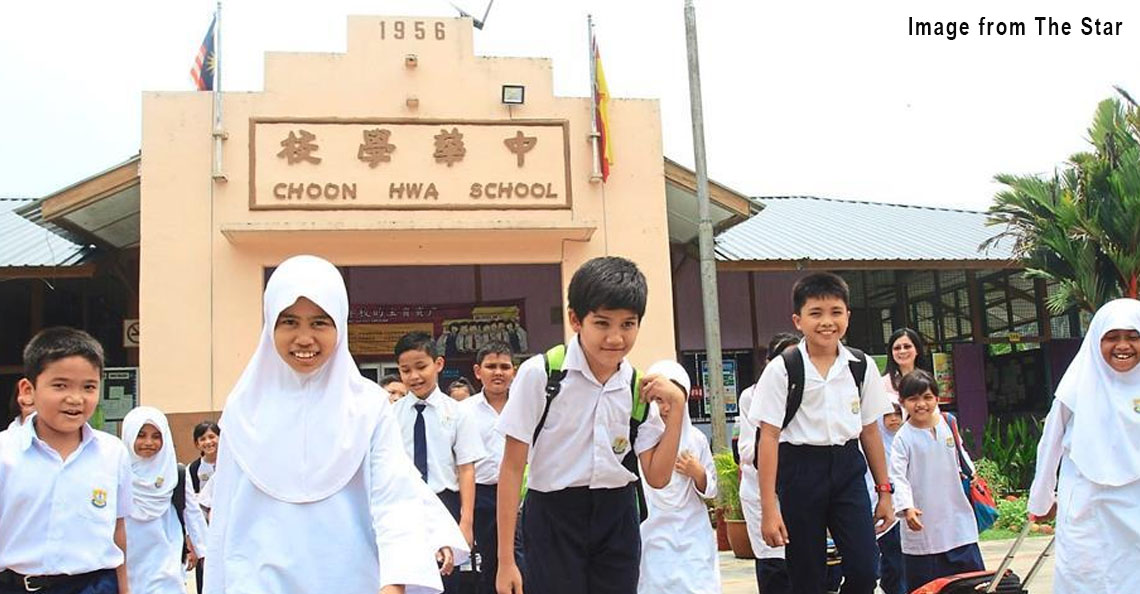
Published by Business Today & The Sun Daily, image from Business Today.
Amidst the drastic growth of internet users this year – with almost one million additions compared to 2019 – ensuring digital literacy at every layer of society, especially the youngsters, is essential.
While we couldn’t deny the benefits that the internet has given us, it is also important to note the online world carries its own risk. Without proper education or knowledge on how the internet and technology work, it could endanger children’s psychological and mental well-being.
Thus, this is why digital literacy is vital, and perhaps, is needed to be embedded in the school curriculum as early as Year 4.
Currently, as can be seen in the Year 4 textbook of Design and Technology (RBT), this subject is focusing on algorithms lessons and how to develop simple to more complicated computer programmes.
Indeed, this is not enough. Another equally important topic – which is digital literacy – is needed to properly teach students the ability to use the internet and technology devices in a beneficial, useful, and safe way.
In fact, according to The Federation of Malaysian Consumers Associations (Fomca), the government needs to commit more resources to empower consumers, especially children, and youth, to protect themselves in the online world.
However, with digital literacy lesson, not that we want to encourage the students to spend more time with playing phone or surfing the internet, but instead, we want to teach them to regulate their tech use and ensure that they fully understand the technology they are using.
Basically, knowing how to send a text and post to social media are not considered “digitally literate”; instead, they know the fundamentals of internet protection, such as creating strong passwords, recognising and using privacy settings, can tell if a social media/news is fake, or even know what kind of personal information they should avoid disclosing online.
They also realise the risks of cyberbullying and aim to stop it and discourage people from doing it. As stated by a study in 2019, three in 10 young Malaysians were said to be victims of cyberbullying, which affects their education and social life. The majority was said to experience it through private messaging applications.
And in regards to the social media usage, there were 26 million users in Malaysia as of January 2020 alone and is projected to grow higher, following the implementation of the Movement Control Order to curb the spread of the pandemic.
Due to this, the need for the kids to receive digital literacy lesson is critical so that they are aware of the potential consequences of what they are sharing online in the social media and most importantly, help them understand about digital footprint – the trail of information they leave behind when they use the internet.
As a matter of fact, the United Nations International Children’s Emergency Fund (Unicef) has even released a new technical note aimed at urging governments, Information and Communication Technology (ICT) industries, educators, and parents to be alert, take urgent measures to mitigate potential risks, and ensure children’s online experiences are safe and positive, especially during Covid-19.
Technically, including digital literacy in the school curriculum is not about becoming trendy or merely seeking to include students in learning; it is beyond that.
Apart from teaching them the dos and don’ts of the online world, digital literacy lessons’ goal is to address the evolving nature of subject knowledge and acknowledge young people may require various kinds of skills, knowledge and comprehension to improve their competence in the various subjects.
In fact, digital literacy is also one of the 21st-century skills needed to aid students in succeeding in their future careers during this Information Age.
Plus, with most schools now necessitating students to utilise the world wide web to do the school assignment, students are expected to have necessary skills like typing up a document, do research via search engine, send an email, and most importantly – doing all of this responsibly.
Well, theoretically, if a student is digitally literate, they know the ethic of using online resources in doing their assignment, whereby the internet is just a tool that helps them with extra information – not a platform for them to easily complete their assignment by plagiarising other people’s work.
In a world which is so connected, children should properly learn digital literacy lesson from an early age to help them engage with the online universe safely while at the same time help them grow to meet the demand of the future world.
Nurafifah Mohammad Suhaimi is Research Assistant at EMIR Research, an independent think tank focused on strategic policy recommendations based on rigorous research.
Diterbitkan oleh Utusan Malaysia.
Walaupun internet memberikan pelbagai faedah, penting untuk kita tahu bahawa dunia dalam talian sebenarnya berisiko tinggi, terutama kepada kanak-kanak. Tanpa pengetahuan yang betul tentang bagaimana internet dan teknologi berfungsi, ia boleh membahayakan kesejahteraan psikologi dan mental mereka.
Inilah sebabnya mengapa literasi digital sangat penting dan mungkin perlu disertakan dalam kurikulum sekolah bermula seawal tahun empat.
Pada masa ini, seperti yang dapat dilihat dalam buku teks Reka Bentuk dan Teknologi Tahun 4, subjek itu memfokuskan pada pelajaran algoritma dan bagaimana untuk mengembangkan program komputer yang sederhana ke tahap lebih rumit.
Ternyata, ini tidak mencukupi. Tiada topik penting iaitu literasi digital yang diperlukan untuk mengajar murid mengenai penggunaan internet dan peranti teknologi dengan cara yang bermanfaat, berguna dan selamat.
Mereka juga harus diajar asas-asas perlindungan internet seperti membuat kata laluan yang kukuh, mengenali dan menggunakan tetapan privasi, dapat mengenal pasti jika sesebuah berita adalah palsu dan tahu jenis maklumat peribadi yang tidak harus mereka dedahkan dalam talian.
Sebenarnya, literasi digital adalah salah satu kemahiran abad ke-21 yang diperlukan untuk membantu murid berjaya dalam kerjaya dan masa depan mereka.
Nurafifah Mohammad Suhaimi merupakan Pembantu Penyelidik di EMIR Research, sebuah organisasi pemikir bebas yang berfokuskan kepada pencernaan saranan-saranan dasar strategik berteraskan penyelidikan yang terperinci, konsisten dan menyeluruh.

